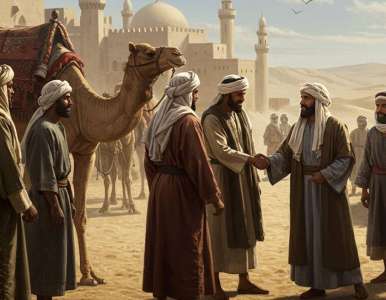The phenomenon of men who are ahead of their time may be universal, yet it is more prominent in our region. A man such as Saadeh, with his enlightened and civilized thought, saw what others could not see. He presented a theory that deserves to be studied, respected, and given the depth of contemplation it merits—rather than the shallow, superficial thinking with which his ideas were initially met.
All the current developments on the Arab stage today, and the deep rifts within the Arab League, stand in stark contrast to the achievements of the Syrian nationalists alongside the national resistance in Lebanon, and the countless martyrs who sacrificed themselves for their cause—starting with Sana’a Mehaidli and continuing with thousands of others faithful to their nation. All of this should compel every patriotic Syrian to reconsider Saadeh’s theories deeply and to attempt to understand them in a way that differs from the simplistic interpretation his critics once adopted.
For instance, when Saadeh called for the idea of a complete Syrian nation, his opponents argued that history refuted this theory due to the continuous migrations across natural Syria. Yet they either forgot—or deliberately ignored—that every nation throughout history has experienced migrations, some of which blended into it while others remained distinct. They also ignored the fact that Saadeh himself was the first to speak of the cultural fusion of civilizations in this unique region—the very heart of the world. Thus, I fail to see the supposed contradiction they claimed to find in his theory when they discussed it so superficially.
Again, when critics argued that the problem lay in the “appendages” Saadeh included in his project of natural Syria—particularly Iraq, Kurdistan, Sinai, and Cyprus—claiming these had never historically belonged to any Syrian kingdom except under the Umayyad Caliphate, perhaps those intellectuals had never heard of the Kingdom of Mari, the Babylonians, the Sumerians, or even the Phoenicians. All of these were part of the many civilizations that once thrived in this region, building a culture that later became a beacon of civilization for the entire world.
Here, I am astonished at our intellectuals who belittle the greatness of this nation’s civilization, while one of Europe’s most prominent historians declared: “Every civilized man in the world must say: I have two homelands—my native land and Syria.” Is it not the height of irony that outsiders can recognize our civilization, while our own intellectuals cannot? Or is it the fate of this nation first to lose its great men and thinkers, then to lose its very conscience, and ultimately to lose itself?
Saadeh was a hero in his life, in his thought, and in his struggle, just as he was a hero in his martyrdom for his cause. He was among the first intellectuals to prove his readiness to die for his convictions. I wish to conclude here with the account of his execution: when he was asked to merely retract his beliefs—verbally and superficially—in exchange for sparing his life, knowing well that his survival depended on a single word from his lips, he nonetheless refused. Instead, he uttered his famous phrase: “Life is a stance of dignity.” He was executed at that very moment.
Truly, what a leader… Life indeed is a stance of dignity.
To be continued…
Eng. Hassan Safwan Dalati
2009-03-07



